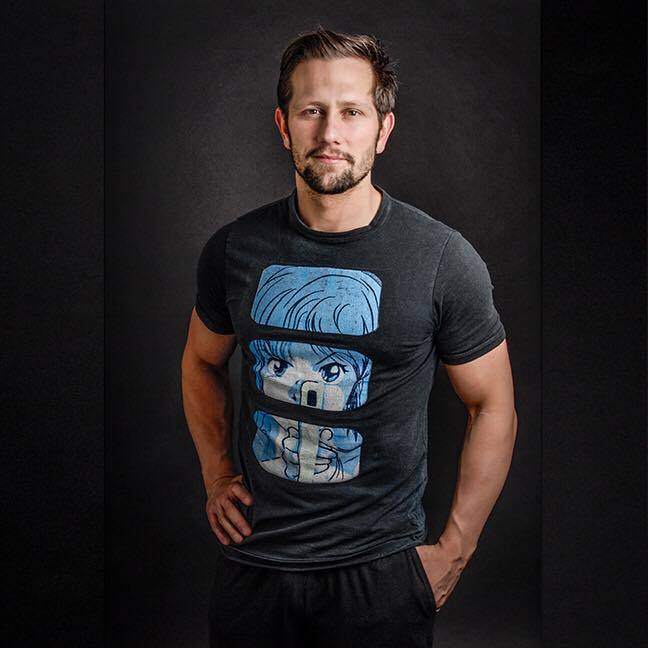Sex, men & exercise
An article I read last week particularly caught my attention. The article was in The Times and was titled The Men Who Are Too Fit To Have Sex. It was written by Philip Robinson, and appeared at the start of the month.The article begins by mentioning, rightly, that "We are living in an era in which, it seems, there is no excuse to be fat or unfit. More than five million people in the UK have gym memberships and 3 million of us own an electronic fitness brand."The article goes on to state that we know that exercising helps us to be fitter, to reduce the risk of cancer, to enable us to lead healthier lives, and also to have a better libido.All of which are arguments that what we have been heard for years, according to Robinson.
What Robinson also points to is how recent studies have shown that too much exercise can slow down your libido (in the same way as if the person exercising were overweight and/or sedentary, i.e. physically inactive). It can be disrupting to read such a claim, of course. For Dr Anthony Hackney, Professor of Exercise Physiology & Nutrition and the man behind these studies it is clear, however, that if a sedentary men and women start exercising a little more every week, that will actually boost their libido. Hackney also advises that, on the other hand, people who tend to exercise too much finally reach a plateau, and then see their libido start to weaken. Triathletes and marathon runners are mentioned in Robinson’s article as examples of people who have seen their libido decrease (and who prefer to go to bed only to sleep).
Hackney admits that it is complicated to define a dosage or a limit to exercise before it starts to impact negatively on the part of the person exercising. I have talked a lot with people, for example, as a result of my work as a Personal Trainer about the effect of exercise on their lives, and recently have had a chat with a colleague who told me that his first meal of the day is at 4.30am, which consists of quinoa and chicken, and that his second meal comes at 8.30am (featuring the same type of food). This kind of dedication and focus can mean that other, more social, aspects of our lives can become compressed, or pushed aside. I would also add that intense and repetitive training is often linked up with a strict nutritionally discipline, as evidenced in the preparation of food, the rhythm of meals as eaten and so on.
The second part of Robinson’s article concerns the British Urologist Professor Geoffrey Hackett, who believes "that there is a link between extreme exercise and low testosterone." Hackett adds that "excessive exercise can affect the luteinising hormone responses, which normally stimulates the testes to make testosterone every morning and during sex… the longer this suppression carries on, the lower the chance of recovery."It is challenging to discover if excessive training is the problem here, and that it is not the absorption of steroids and anabolics’ that is to blame for this effect, "as many men lie because of the stigma" involved in taking such supplements. From my experience, I have never heard anyone proudly boasting about taking such substances, so this remains an area of speculation.
Finally, the third part of the article concerns Professor Heather A. Hausenblas, who is the co-author of The Truth About Exercise Addiction: Understanding The Dark Side of Thinspiration. In the article Hausenbias points out "that in some cases high intensity exercise might be a sort of coping technique employed by men already struggling with a relationship. For them, it is more of a socially accepted method than going to the bar or drinking would be - because exercise and training is viewed as a good thing." I agree with Professor Hausenblas on this point. Many of the super fit guys that I know are also shy and single. On a superficial level this may look like a locked in syndrome, socially speaking, though that is a reading that only has validity on a superficial level.
A final point is made in the article by Trudy Hannington, a Psychosexual Therapist at the Leger Clinic in Doncaster. According to Hannington, she usually asks the same question of her patients, which is: If your partner was willing, how often do you think you would want to have sex? According to Hannington, many men in their thirties and forties respond that they only want to have sex once a month. Well, let’s just say that such a schedule of physical activity is much less intense than the training that they are willing to do on the gym floor. When working out.
And here is Hannington’s point precisely: She explains in the article that one of her male patient’s was very alive when talking about sport or exercising and then, when it comes to talking about sex, his answer usually becomes "What is the big deal?" Hannington continues in the article by stating that "sport was more exciting to him." After reading this article many anecdotes (collected at the gym, but also elsewhere) came back to me. At the very beginning of my time as a gym user, the gym was very much a social place and in total honestly, in my early 20s my training took up a big part of my time every week. At that time I was not very successful with relationships, shall we say.
Nowadays, and because of the nature of my work as a Personal Trainer, I spend much less time training myself and my personal relationships are more successful. My point is that training can be a therapy in itself and, as such, those who work out should ask themselves more often about whether working out makes life (as whole human being, and particularly with regard to relationships, sex, confidence etc.) any better? I became through my job what can be characterised as ‘a people person’. I talk a lot (I listen a lot as well!), and not just when I am with clients. I also know that, even though I tend to spend a lot of time there, that sometimes I need to escape the gym and look to other interests to keep my life moving.
Technically speaking, when it comes to working out, the key to success lies in the intensity of the workout. Intensity should be at the heart of each workout, but should also be applied to a specific aim, which is to train to make life better and not to end up exhausted, or to spend hours in the gym like some kind of a workout monk.And certainly not to eat into all our free hours to maintain an exercise programme. Training can be cheap medicine, but only if it is undertaken intelligently.So train smart, and whatever you do, don’t over do it.
FORM-Idea.com London, 22nd March 2017.




